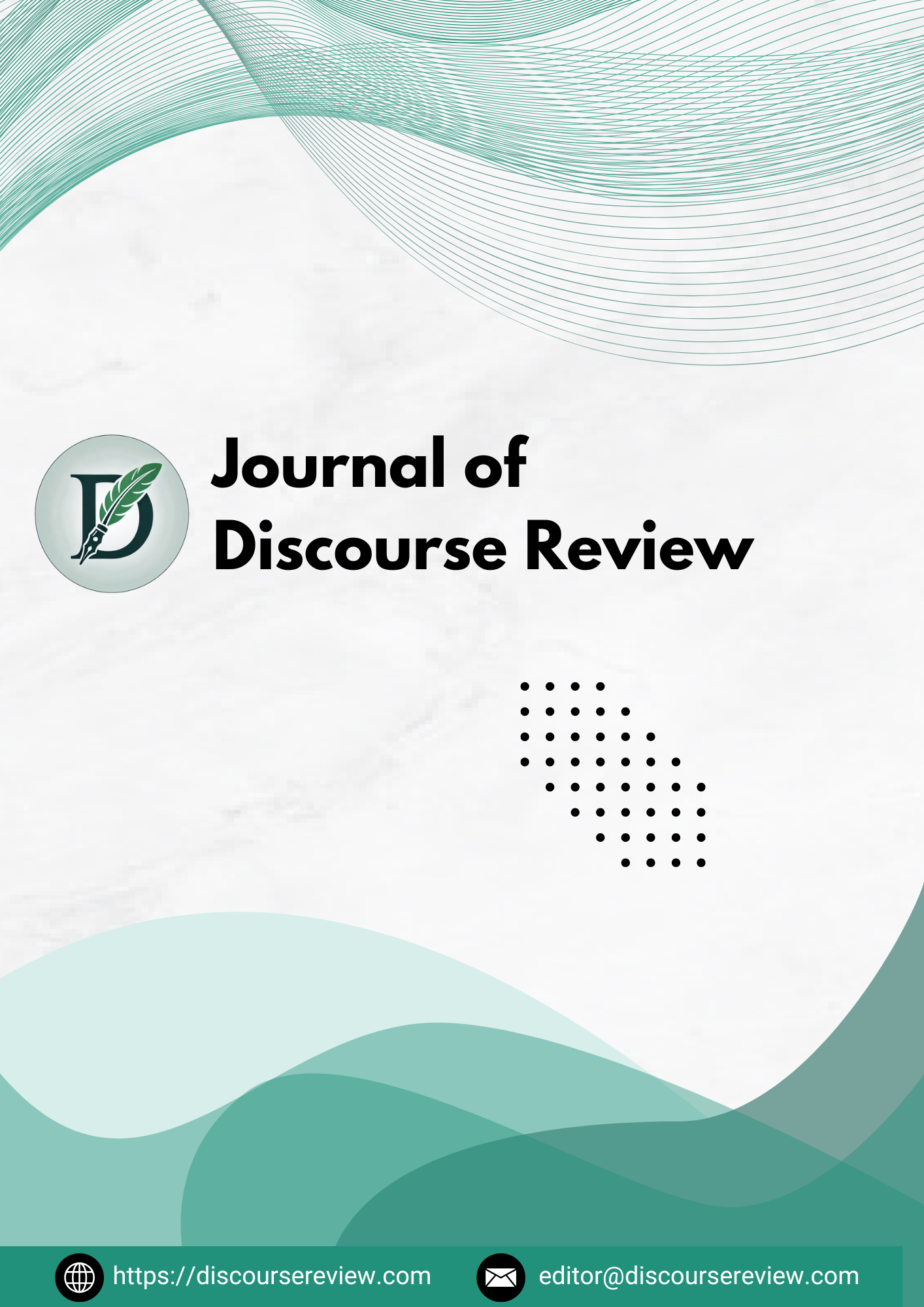
Journal of Discourse Review
Open Access Humanitarian Scholarship
7 days
Time to first decision

Open Access Humanitarian Scholarship
Time to first decision
Volume: 1 Issue: 1
Year: 2025, Page: 1-11,
Received: Feb. 10, 2025 Accepted: March 21, 2025 Published: April 22, 2025
This paper examines the portrayal of women in media using the framework of Critical Discourse Analysis (CDA). Drawing on sociolinguistic approaches and discourse strategies, it investigates how advertisements contribute to the construction of female identity and the reinforcement of dominant social ideologies. The study focuses on four advertisements promoting weight-loss and skincare products and applies Fairclough’s three-dimensional model to analyze both linguistic and visual elements. Through this model, the paper uncovers how media texts normalize specific body standards, particularly the idealization of thinness among women. It also highlights how discourse not only reflects but actively shapes societal expectations related to gender and appearance. The paper further traces the evolution of media studies within linguistics, illustrating how discourse analysis offers valuable insights into the mechanisms through which ideologies are embedded in seemingly neutral promotional content. The findings call attention to the need for a more critical awareness of how language and visuals are employed in media to sustain narrow and often harmful representations of women. This approach highlights the importance of questioning everyday media narratives and the social assumptions they propagate.
Keywords: Critical Discourse Analysis, Advertisements, Gender Ideology, Media Discourse, Weight Loss, Skincare.
Banet-Weiser, S. (2018). Empowered: Popular feminism and popular misogyny. Duke University Press.
Bordo, S. (2003). Unbearable weight: Feminism, Western culture, and the body (10th anniversary ed.). University of California Press. https://doi.org/10.1525/9780520930711
Blommaert, J. (2018). Dialogues with ethnography: Notes on classics, and how I read them. Multilingual Matters.
Coupland, N., & Jaworski, A. (Eds.). (1997). Sociolinguistics: A reader and coursebook. Macmillan. https://doi.org/10.1007/978-1-349-25582-5
Eagleton, T. (1991). Ideology: An introduction. Verso.
Elias, A. S., Gill, R., & Scharff, C. (Eds.). (2017). Aesthetic labour: Rethinking beauty politics in neoliberalism. Palgrave Macmillan. https://doi.org/10.1057/978-1-137-47765-1
Fairclough, N. (1993). Discourse and social change. Polity Press.
Fairclough, N. (1995). Critical discourse analysis: The critical study of language. Longman.
Fairclough, N. (2013). Language and power (3rd ed.). Routledge.
Gill, R. (2007). Gender and the media. Polity Press.
Güç, Ç. (2024). Women’s lifestyle and wellness visibilities on Instagram: A critical analysis from a feminist perspective (Doctoral dissertation, Bilkent University).
Huang, Q., Peng, W., & Ahn, S. (2021). When media become the mirror: A meta-analysis on media and body image. Media psychology, 24(4), 437-489. https://doi.org/10.1080/15213269.2020.1737545
Lazar, M. M. (2017). Feminist critical discourse analysis. In J. Flowerdew & J. E. Richardson (Eds.), The Routledge handbook of critical discourse studies (pp. 372-387). Routledge.
Machin, D., & Mayr, A. (2012). How to do critical discourse analysis: A multimodal introduction. Sage.
Parameswaran, R. E. (2004). Spectacles of gender and globalization: Mapping Miss World's media event space in the news. The Communication Review, 7(4), 371-406. https://doi.org/10.1080/10714420490886970
Ringrow, H. (2016). The language of cosmetics advertising. Palgrave Macmillan. https://doi.org/10.1057/978-1-137-55798-8
Rottenberg, C. (2018). The rise of neoliberal feminism. Oxford University Press.
Van Dijk, T. A. (1998). Ideology: A multidisciplinary approach. Sage Publications.
Van Dijk, T. A. (2001). Critical discourse analysis. In D. Tannen, D. Schiffrin, & H. E. Hamilton (Eds.), The handbook of discourse analysis (pp. 352–371). Blackwell Publishers.
Van Dijk, T. A. (2015). Critical discourse analysis. In D. Tannen, H. E. Hamilton, & D. Schiffrin (Eds.), The handbook of discourse analysis (2nd ed., pp. 466-485). Wiley-Blackwell. https://doi.org/10.1002/9781118584194
Wodak, R., & Meyer, M. (Eds.). (2015). Methods of critical discourse studies (3rd ed.). Sage.
Wolf, N. (2002). The beauty myth: How images of beauty are used against women. Harper Perennial.
© 2025 JDR Academic Trust. This is an open-access publication distributed under the terms of the Creative Commons Attribution 4.0 International License (CC BY 4.0). https://creativecommons.org/licenses/by/4.0/
Chenglaunganbi, S. (2025). The Illusion of Perfection: A Discourse Analysis of Weight Loss and Skincare Advertisements and Their Impact on Consumer Perception. Journal of Discourse Review, 1(1), 1-11.